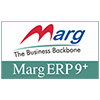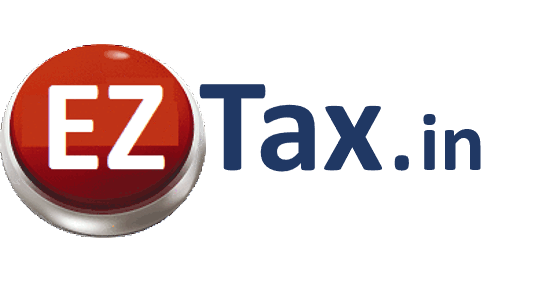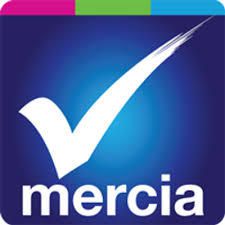Yes, most income tax software applications can be accessed from numerous devices and platforms. These systems are either web-based or include a mobile app version, allowing users to view their tax data from a variety of devices, including PCs, cellphones, and tablets. Before purchasing or using any program, always ensure that it is compatible with your specific devices and operating system. This ensures a consistent experience and prevents any compatibility difficulties.
List of 20 Best Income Tax Software
TDSPro solution for TDS Return preparation. This powerful tool streamlines Correction Statements, PAN Verification, integration with Traces, and automatically calculates Interest and Tax. It also offers the convenience of generating 15G/15H forms and...Read More TDSPro
TaxSlayer Books is a solution for your accounting requirements! Our intuitive software is completely free and includes integrated financial services. Seamlessly connect with your bank accounts and import transactions for quick and accurate bookkeepin...Read More TaxSlayer Books
Winman Software solution for efficient income tax calculation and filing tasks for CAs. This comprehensive software includes modules like Balance Sheet Tool, Form 3CD filing utility, and billing tool to simplify the process. With its advanced feature...Read More Winman Software
Virtual Splats Income Tax, a state-of-the-art software designed to effortlessly calculate your income as per the Income Tax Act of 1961. With its advanced features, this tool empowers you to meet your personal and financial objectives seamlessly. Sim...Read More Virtual Splats Income Tax
Wings Income Tax & Tds solution for managing all your tax and TDS requirements. Our innovative software is designed with advanced technology and a user-friendly interface, ensuring a smooth and streamlined experience. Simplify your tax and TDS proced...Read More Wings Income Tax & Tds
STACOS, the top tax and compliance solution in India. Trusted by government agencies, tax professionals, and businesses, STACOS offers efficient IT solutions for all your tax, finance, and compliance needs. Simplify complex tax issues and meet compli...Read More STACOS
Reach-Tax solution for small businesses seeking a convenient and affordable method to outsource their tax and accounting responsibilities. Our online platform connects you with proficient experts who will take care of your financial requirements, giv...Read More Reach-Tax
TaxAct is a tax preparation software that is perfect for individuals, small business owners, and tax professionals. Developed by experienced programmers and tax experts, our software is highly accurate and user-friendly. You can easily file your taxe...Read More TaxAct
TurboTax is a highly acclaimed tax software that is renowned for its user-friendly interface and efficiency. Its Free Edition enables you to prepare and file your taxes electronically with the IRS at no cost. TurboTax streamlines the process of filin...Read More TurboTax
Tax2win is the preferred platform in India for filing income tax returns quickly and smoothly. Our company is authorized by the IT Department to e-file income tax returns for individuals. Experience a hassle-free and efficient tax return filing proce...Read More Tax2win
TaxTron is a trusted tax software that simplifies the process of personal and corporate tax preparation. Our user-friendly tools are backed by exceptional support, allowing you to confidently navigate your tax requirements. Say goodbye to the stress...Read More TaxTron
MARG ERP 9+ Excise is a software solution for traders and manufacturers. This efficient and budget-friendly tool is designed to seamlessly manage all excise details, reducing mistakes and ensuring precision. Its user-friendly interface and efficient...Read More MARG ERP 9+ Excise
UltraTax CS is a software solution for industry leaders in finance, law, taxes, accounting, science, intellectual property, and media. With its cutting-edge features, UltraTax CS is the go-to tool for professionals looking to deliver top-notch result...Read More UltraTax CS
TDSMAN Online - the premier TDS Return preparation software from TIN-NSDL. Say farewell to the complexities of buying, installing, and maintaining software, as TDSMAN Online enables you to generate TDS Returns and TCS Returns for all Forms effortless...Read More TDSMAN ONLINE
TaxCloudIndia is the top-notch web-based software for filing I-T Returns and e-TDS. It caters to the needs of CAs, Accountants, and Companies, offering a seamless and secure online platform. Our user-friendly interface ensures a hassle-free tax filin...Read More TaxCloudIndia
TaxCloud is solution for businesses of any size seeking to simplify their sales tax compliance. With over 15 years of proven success and a rapidly expanding user base of 2,000+ satisfied customers, TaxCloud provides precise calculation, collection, a...Read More TaxCloud
EZTax.in Self Service TDS Filing, the user-friendly solution for professionals and businesses to file their TDS returns with ease. Our optimized platform allows you to prepare returns using an online questionnaire or offline Excel template, simplifyi...Read More EZTax.in Self Service TDS Filing
TaxJar is a reliable tax solution that has gained the trust of more than 15,000 businesses. It simplifies sales tax calculation and seamlessly integrates with popular platforms like Amazon, Shopify, and PayPal. This streamlined process makes tax comp...Read More TaxJar
Koinly is a tax calculator for Bitcoin and cryptocurrency. Simplify the process of generating tax reports with seamless integration of accounts and wallets through API or CSV files. With Koinly, calculating capital gains becomes effortless and suppor...Read More Koinly
Mercia Income Tax Software – your all-in-one solution for hassle-free tax filing. Our comprehensive line of software includes CIS Contractor Returns, CT600 Corporation Tax Returns, and Income and Partnership Tax Returns. With state-of-the-art...Read More Mercia
Learn More About Income Tax Software
- What Is Income Tax Software?
- What Are The Recent Trends In Income Tax Software?
- Benefits Of Using Income Tax Software
- Important Factors To Consider While Purchasing Income Tax Software?
- What Are The Key Features To Look For In Income Tax Software?
- Why Do Businesses Need Income Tax Software?
- How Much Time Is Required To Implement Income Tax Software?
- What Is The Level Of Customization Available In Income Tax Software?
- Which Industries Can Benefit The Most From Income Tax Software?
- Conclusion
What Is Income Tax Software?
Income tax software is a computerized application that allows individuals and businesses to calculate and file their taxes accurately and efficiently. This program automates the tax preparation process by guiding users through each step and doing sophisticated computations for them. It can prepare both federal and state tax returns and manage a wide range of income, deductions, and credits.
One of the primary benefits of using income tax software is its accuracy. These tools, which use advanced algorithms and built-in error checks, can accurately calculate taxes depending on the data provided. This lessens the possibility of errors and an audit by the tax authorities. Furthermore, income tax software has a user-friendly design, making it easier for non-technical people to browse and understand.
Most software also provides customer assistance or chat alternatives to address any problems or issues that may emerge during the tax preparation process. Depending on the intricacy of your tax position, there are several types of income tax software available on the market. Basic versions are appropriate for individuals with simple tax returns, but advanced versions contain itemized deductions, rental income, and investments.
Some software also allows you to import data directly from tax forms or past tax returns, which further simplifies the procedure. The cost of income tax software varies, with some simple versions available for free and more comprehensive versions costing between $30 and $100. However, the cost is frequently substantially lower than hiring a tax professional to prepare your taxes, making it an affordable option for many taxpayers.
Before making a purchase, you should research and compare several income tax software solutions to determine which one best meets your demands and budget. Consider the sort of taxes you need to submit, the level of technical knowledge required, and any additional features or customer assistance provided.
What Are The Recent Trends In Income Tax Software?
Recent developments in income tax software have transformed how individuals and corporations file their taxes. Income tax software has evolved to enable a seamless and effective tax preparation procedure as technology advances and consumer demands for convenience grow.
Here are some current trends in income tax software that purchasers should consider when selecting the best software for their requirements.
1. Online And Cloud-Based Solutions: One of the most significant changes in income tax software is the transition to online and cloud-based solutions. These software applications enable users to view their tax information from any location, at any time, and on any device with an internet connection. This eliminates the need to install software on each machine and worry about data loss or backups. Online and cloud-based applications also enable real-time collaboration, making it an excellent choice for firms with many users managing tax preparation.
2. Artificial Intelligence (AI) And Automation: AI and automation are creating waves in a variety of industries, including income tax software. Tax software can now utilize artificial intelligence to automatically fill out forms, integrate data from financial institutions, and even recommend deductions and credits. This saves users time while also minimizing errors and enhancing accuracy.
3. Mobile Apps: As smartphones and tablets become more popular, an increasing number of tax software providers are launching mobile apps. A mobile app allows users to file their taxes while on the go, as well as scan and upload necessary documents immediately from their smartphone. This trend is especially useful for freelancers and self-employed individuals, who may not always have access to a desktop or laptop.
4. Increased Security Measures: As sensitive financial information is transmitted online via tax software, security concerns have grown. To solve this, many income tax software applications now include advanced security features including data encryption, secure login systems, and multi-factor authentication. This gives users piece of mind and protects their information from cyber attacks.
5. Customization And Integration: Another emerging trend is the customization and integration of income tax software. Many software products now allow users to modify and tailor the interface based on their preferences. Furthermore, connectivity with other financial software, such as accounting or bookkeeping applications, provides for more efficient data transfer and accuracy.
Benefits Of Using Income Tax Software
Individuals and corporations can use income tax software to easily prepare, file, and manage their tax returns. With technological improvements, income tax software has become a more popular alternative for taxpayers, offering a number of advantages over traditional tax filing methods.
Explore the numerous benefits of using income tax software, so you can make an informed selection.
1. Accuracy And Reduced Errors: One of the primary advantages of using income tax software is its accuracy. The software automates calculations and ensures that your returns are error-free. This reduces the possibility of any errors that could lead to audits or penalties. Furthermore, income tax software prompts you to enter all required information, lowering the likelihood of missing any important details.
2. Time-Saving: Filing taxes can be time-consuming, particularly for individuals with complicated tax situations. Income tax software makes the entire process easier, allowing you to file your taxes quickly and efficiently. You no longer need to spend hours gathering documents, personally filling out forms, or going to the post office. With a few clicks, you can submit your taxes in minutes, allowing you more time to focus on other important concerns.
3. Cost-Effective: Income tax software can help you save money in the long term. Most software costs substantially less than employing a tax specialist. Furthermore, software allows you to file several returns at no extra expense, making it an affordable alternative for enterprises or individuals with different revenue streams.
4. Accessibility: Income tax software provides the convenience of filing your taxes from the comfort of your own home. You no longer need to take time off work or make appointments with tax professionals. Whether you have a busy schedule or mobility challenges, income tax software allows you to file your taxes whenever it is convenient.
5. Tax Tips And Guidance: Many income tax software applications include valuable tax advice to help you optimize your deductions and credits. This function is especially useful for first-time filers and those dealing with complex tax situations. With the help of these tax suggestions, you can avoid missing out on any potential tax savings.
Important Factors To Consider While Purchasing Income Tax Software?
When it comes to choosing income tax software, several crucial elements must be examined to ensure that you get the best product for your requirements. With so many options available on the market, it can be difficult to identify which software will best meet your individual needs.
To help you make an informed decision, here are some crucial considerations to consider when selecting income tax software.
1. Features And Functionality: The first and most significant consideration for income tax software is its features and functionality. Make sure to properly examine the software and its capabilities to see if it includes all of the elements you'll need to submit your taxes correctly. Tax computations, form preparation, electronic filing, and tax savings tips are some of the most important things to consider.
2. Ease Of Use: The next consideration is the software's user-friendliness. Nobody wants to spend hours figuring out how to utilize tax software. Look for a product with a user-friendly interface, clear instructions, and useful guides. This will save you time and frustration, allowing you to complete your taxes more efficiently.
3. Pricing: Another important element to consider is the cost of income tax software. While some software may cost more, it may include advanced capabilities that will save you time and money in the long run. On the other hand, there may be more affordable solutions that nevertheless offer all of the necessary features. Consider your budget and compare pricing to discover the best balance of price and features.
4. Compatibility: Before purchasing income tax software, make sure it works with your operating system and devices. Some applications may only run on specific operating systems, such as Windows or Mac, although others may be compatible with both. Also, ensure sure the program is available on desktop, mobile, or web-based platforms, depending on your requirements.
5. Customer Help: In the event of any technical difficulties or questions, it is critical to have dependable customer help from the software vendor. Look for software that provides a variety of customer assistance options, such as email, phone, and live chat. Look for self-help tools on their website, such as user manuals and FAQs.
6. Security And Protection: Because tax information is sensitive, it is critical that you select income tax software that provides top-tier security and protection for your personal and financial information. To ensure the security of your data, look for software that includes encryption, multi-factor authentication, and regular upgrades. Taking these crucial variables into account allows you to confidently choose the best income tax software for your demands and budget. Remember to read reviews and compare numerous goods before making a selection to guarantee you pick the best possible choice. Happy tax filing!
What Are The Key Features To Look For In Income Tax Software?
When it comes to selecting the best income tax software, consumers should examine a few crucial aspects. These aspects not only define the software's performance, but also have an impact on the overall efficiency and correctness of tax filing.
To make an informed decision, the following are the essential elements to look for in income tax software:
1. Simple And User-Friendly Interface: One of the most significant considerations is simplicity of use and navigation. A well-designed and intuitive interface enables users to enter and amend financial information without feeling overwhelmed.
2. Comprehensive Tax Form Coverage: The best income tax software should include all applicable tax forms, including federal, state, and local ones. These forms should be updated on a regular basis to ensure that they are in accordance with current tax rules and regulations.
3. Error Checking And Audit Support: Tax mistakes can be costly, so having software that detects potential issues and provides audit support is essential. Look for software that includes error checking and step-by-step advice in the event of an audit.
4. Importing Data Options: Manually entering tax data is time-consuming and error-prone. Look for software that allows you to import data from prior years or from external sources like financial institutions, which will save you time and effort.
5. Calculators And Planning Tools: A decent income tax software should include calculators that can assist you predict your tax refund or liability. It should also include planning tools to assist you make smarter financial decisions and optimize your deductions.
6. Cloud-Based Or Desktop: Decide if you want cloud-based or desktop software. Cloud-based software is accessible from any device with an internet connection, but desktop software provides more control over your data but may require manual upgrades.
7. Customer Help And Security: Select software that provides dependable customer help in the event that you encounter any troubles. Also, be sure the software uses advanced security techniques, such as encryption, to secure your critical financial information.
Why Do Businesses Need Income Tax Software?
Income tax software is a crucial tool for any organization that wants to expedite their tax filing process and keep on top of their financial obligations. With continuously changing tax requirements and intricate calculations, income tax software makes tax filing easier for businesses of all sizes.
Here are a few reasons why firms use income tax software:
1. Accuracy: Tax calculations are complex and subject to human mistake. Using income tax software removes the possibility of human error and guarantees correct calculations, lowering the likelihood of penalties and audits.
2. Time-Saving: The software does computations, imports previous year's data, and provides reports. This saves numerous hours spent manually entering details, allowing organizations to focus on more critical activities.
3. Up To Speed On Tax Laws: Businesses must comply with tax legislation to avoid penalties and legal troubles. Income tax software is routinely updated to reflect the most recent tax rules and regulations, ensuring firms remain compliant.
4. Customized For Company Needs: Income tax software includes capabilities that allow you to personalize the tax filing procedure to your specific business needs. It allows customers to select the forms that are appropriate for their business, apply precise tax deductions and credits, and easily expedite their tax filing process.
5. Cost-Effective: While investing in income tax software may appear to be expensive at first, it is ultimately a cost-effective alternative. It eliminates the need to hire a professional tax accountant and lowers the likelihood of costly blunders.
6. Data Security: Income tax software has data encryption and secure storage, which protects sensitive financial information from cyber threats. Income tax software provides various benefits to businesses, including accuracy, time savings, cost effectiveness, and data protection. It simplifies the tax filing process and enables firms to comply with ever-changing tax regulations. Businesses that use the correct software can handle their taxes more efficiently, decrease the chance of errors, and save time and resources.
How Much Time Is Required To Implement Income Tax Software?
The time necessary to adopt income tax software varies based on a number of factors, including the intricacy of your tax situation, the size of your company, and the features and capabilities of the software you select. On average, fully implementing income tax software can take anything from a few hours to a few days. The initial step in using income tax software is normally to create an account and enter your business and personal information.
This can take anywhere from 30 minutes to an hour, depending on how much data you need to enter. Some software also allows you to import data from prior tax returns or accounting software, which saves time. Next, you'll need to become acquainted with the software's capabilities and interface. This could include viewing tutorial videos or reading user guidelines, which could take several hours.
However, this time investment will save you important time in the long term since you will be better prepared to operate the software efficiently and accurately. The exact process of entering your financial information and filing your tax returns will be determined by the complexity of your tax position. If your tax situation is uncomplicated, you may be able to complete your returns in a few hours.
However, if your company has several sources of income, deductions, or investments, it may take several days to collect all of the essential information and accurately enter it into the software. Another element influencing the time necessary to implement income tax software is the amount of support given by the software provider. Some software companies provide live assistance or have a dedicated customer service team to handle any queries or difficulties that may occur. This can considerably minimize the time required to implement and use the software appropriately.
What Is The Level Of Customization Available In Income Tax Software?
When it comes to choosing income tax software, customization options are critical in fulfilling the specific demands of customers. The level of customisation possible in income tax software varies substantially depending on the individual or business's specific demands and preferences. In general, income tax software allows for extensive customization via a variety of features, settings, and options. These enable users to personalize their tax preparation experience and tailor the software to their individual needs.
Income tax software can be customized in several major areas, including:
1. Forms And Schedules: The best income tax software has a variety of forms and schedules for different tax situations, such as self-employment income, rental income, investments, and so on. Users can just select and complete the forms they require, minimizing unwanted clutter and confusion.
2. Preferences And Settings: Income tax software also allows users to change and configure language, tax year, filing status, and other options. This allows customers to personalize the software to their specific personal or business tax situation, resulting in more accurate and efficient tax preparation.
3. Data Import: Many income tax software applications allow you to import data from past tax returns or other sources, such as banking institutions and employers. This saves customers time and effort when manually entering data and can be an effective customizing option for individuals with complex tax situations.
4. User Interface: Income tax software's user interface can be changed to reflect individual preferences, such as text size and color scheme. This can improve the overall user experience and make the program more accessible.
5. Support And Guidance: Customizable support and guidance services, including as live chat, phone support, and help articles, can be beneficial for users who require additional assistance when filing their taxes. Some income tax software systems additionally provide individualized tax recommendations depending on the user's specific tax position.
Which Industries Can Benefit The Most From Income Tax Software?
Income tax software can be a useful resource for a variety of companies. Income tax software can help businesses of all sizes save time and money when filing taxes.
Let's explore, which sectors can benefit the most from income tax software and what features to look for when choosing the best software for your business.
1. Small Businesses: Income tax software can help small businesses save time and money by simplifying the filing process and ensuring compliance with tax rules. Small firms can save time and avoid errors by implementing features such as automatic calculations, report generating, and electronic filing. This is especially useful for small enterprises with limited resources and a smaller crew, allowing them to concentrate on other elements of their operations.
2. Freelancers And Self-Employed Individuals: Freelancers and self-employed people sometimes have complex tax situations, with income from many sources and a variety of deductions to consider. Income tax software can assist them in organizing their accounts, tracking costs, and maximizing their deductions. This can ultimately lead to a smaller tax liability and a larger refund.
3. Accounting And Finance Firms: Accounting and financial organizations rely on time to make money. These organizations can use income tax software to manage several clients and their tax files more efficiently. With tools like data import and customization choices, small businesses can complete tax returns fast and accurately, allowing them to take on more clients and generate revenue.
4. Real Estate And Property Management Firms: Because they deal with a variety of expenses, such as property taxes and rental income, real estate and property management firms have distinct tax requirements. Income tax software can assist small businesses precisely manage and report their income and costs, allowing them to take advantage of all possible deductions.
5. Healthcare Providers: With the Affordable Care Act requiring healthcare providers to disclose income and expenses, the healthcare industry stands to benefit substantially from income tax software. These software systems include specialized functionality for healthcare professionals, such as tracking medical bills and organizing charitable donations. This not only simplifies the tax filing procedure, but it may also result in large tax savings.
Conclusion
To summarize, selecting the correct income tax software is an important decision for both individuals and corporations. Buyers may reduce their options and choose the greatest fit for their unique needs by taking into account features, cost, and support. It is critical to conduct extensive study and comparisons of various software solutions to guarantee that the chosen one can successfully manage all tax-related chores and optimize potential refunds or savings.
Buyers should also emphasize software that has user-friendly interfaces and connects well with other financial systems. Tax software's security standards must also be considered, as it contains sensitive personal and financial information. Seeking out user reviews and feedback can also provide useful information on the dependability and performance of specific software.
Finally, investing in reliable, thorough, and dependable income tax software can significantly speed up the tax filing process and lessen the likelihood of errors. Buyers may safely choose the best income tax software to fit their individual demands and goals if they take the aforementioned aspects into account. Happy tax filing!
Income Tax Software FAQ's
Can Income Tax Software Be Accessed Across Multiple Devices And Platforms?
Is Income Tax Software Future-Proof And Adaptable To Emerging Technologies Like AI, Blockchain Or IoT?
As technology advances at a rapid pace, it is critical that income tax software remains current and flexible to new technologies. Many of the leading income tax software businesses are already using artificial intelligence, blockchain, and IoT to improve their platforms, making them future-proof and ready to meet the industry's shifting expectations. Users may expect a highly efficient and accurate tax preparation experience with these enhanced features.
Is There A Free Trial Offered To Assess Income Tax Software Before Committing?
Yes, many income tax software vendors provide a free trial time to evaluate the software before making a purchase. Users can test the software's features and functionalities before making a decision. It is recommended that you take advantage of the free trial to discover whether the program is appropriate for your tax requirements. Some companies may additionally provide a money-back guarantee if you are dissatisfied with the program after purchase.
Does Income Tax Software Offer Data Security Features And Meet Regulatory Compliance Standards?
Yes, most reliable income tax software systems have data security safeguards to safeguard sensitive financial information and maintain regulatory compliance. These features may include data encryption, multi-factor authentication, and frequent security updates. It is critical to conduct extensive study and select software that satisfies the unique security and compliance requirements of your business or personal tax situation.
Can Income Tax Software Integrate Seamlessly With Existing Tools And Platforms?
Yes, most modern income tax software systems are designed to smoothly interface with existing tools and platforms. This enables users to integrate data from accounting software, bank statements, and other financial documents directly into tax software, making the process more efficient and precise.
It also eliminates the need for manual data entry, which saves time and reduces the likelihood of errors. By connecting with existing tools and platforms, income tax software provides a one-stop shop for handling all financial data.






















